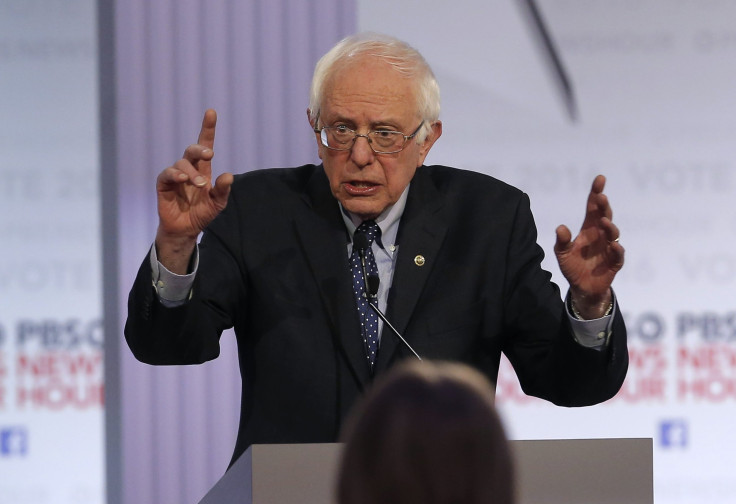Who Is Henry Kissinger? Bernie Sanders Attacks Clinton For Asking The Diplomat For Advice As Secretary Of State

After a less than inspiring foreign policy debate performance last week, Vermont Sen. Bernie Sanders came out swinging Thursday night on the debate stage in Milwaukee. He noted that his opponent, former Secretary of State Hillary Clinton, wrote in her book that she sought out the advice of Richard Nixon's highly controversial secretary of state, Henry Kissinger.
"Count me in as somebody who will not be listening to Henry Kissinger," Sanders said in a lengthy assault on Clinton and her seeming embrace of the former top diplomat in the U.S., who the Vermont senator called "destructive" for policies that he said resulted in the deaths of millions of people in Vietnam and Cambodia.
Sanders' attack appeared to be pre-planned: Immediately after the exchange, his campaign sent out an email blast listing 13 controversial points of Kissinger's career, including his authorization of secret bombings in Laos and his help in planning CIA-led coups in South America.
Clinton defended herself by saying that she sought counsel from a variety of sources when she was secretary of state. She also questioned who Sanders actually listened to when it came to foreign policy.
Kissinger is controversial for more than just his tenure as secretary of state. After leaving public office, he opened a consulting firm that advises clients on government relations internationally. The organization is secretive and does not disclose its business contacts. Kissinger passed up the chance to be on the 9/11 commission when Congress required that he disclose those contacts before he could be confirmed as an appointee to the group.
Introducing the subject of Kissinger may be a Sanders play for older Democrats -- a demographic group that has, so far, favored Clinton. Young voters probably don't have strong feelings about Kissinger, but many older voters in the party still loathe the former diplomat.
Bernie's fool-proof path to victory: Make primaries a referendum on Kissinger. Pretty sure there's not a pro-Kissinger majority in the party
— Noam Scheiber (@noamscheiber) February 12, 2016
The two candidates have been engaged in a unexpectedly competitive race for the Democratic nomination. After surprising the nation with a razor-thin second-place showing in the Iowa caucus Feb. 1, Sanders proceeded to pull off the second-biggest win in the history of the New Hampshire Democratic primary just eight days later.
The electoral math in both Iowa and New Hampshire was tilted more in Sanders favor than the next nominating contests in Nevada Feb. 20 and then South Carolina Feb. 27. While the first two states have predominantly white populations, Nevada has a sizable Hispanic population and South Carolina, a large black population. Those two demographics have traditionally been strong supporters of Clinton. It's not yet clear if Sanders’ momentum will upend that pattern.
On a national level, Clinton still has a comfortable 13.3 percent lead over Sanders, according to averages of polls compiled by Real Clear Politics. In Nevada polling, which is notoriously unreliable and infrequently conducted (the last poll was in late December), Clinton leads by 19.5 percent, according to RCP. In South Carolina RCP indicates that she maintains a 29.5 percent lead.
© Copyright IBTimes 2024. All rights reserved.












